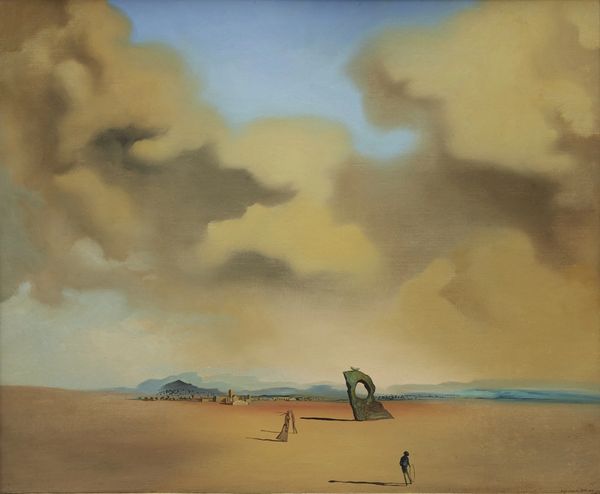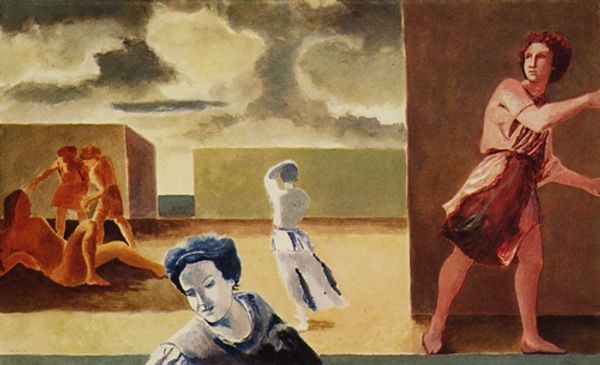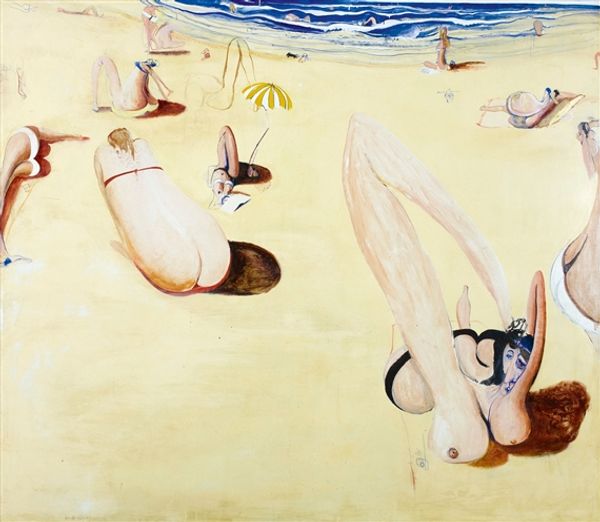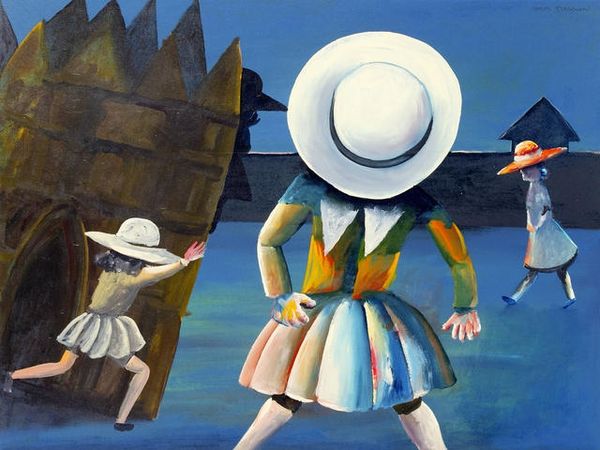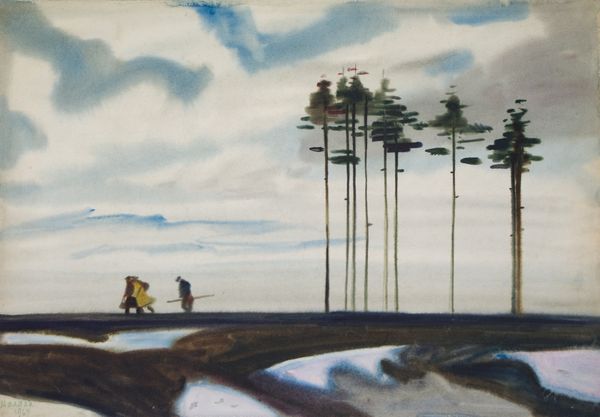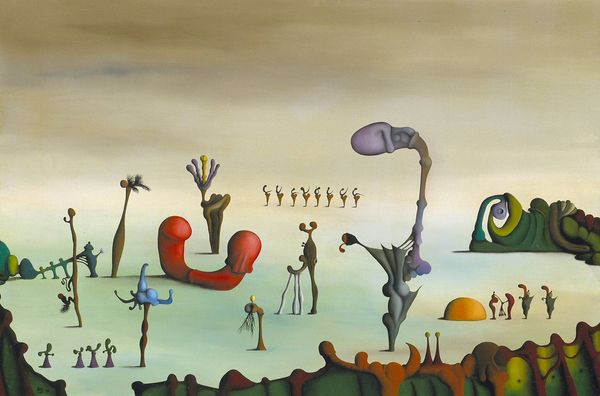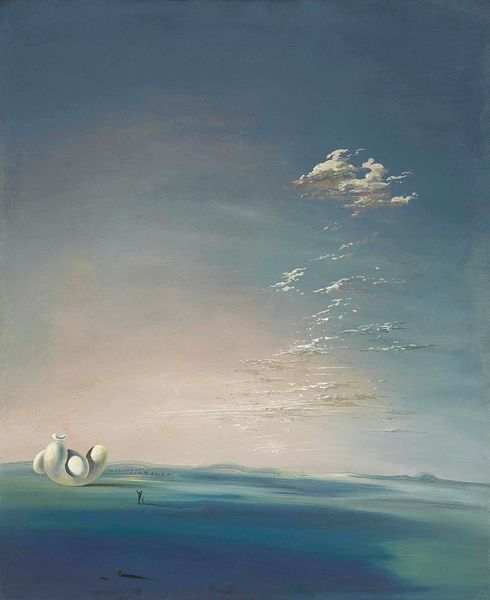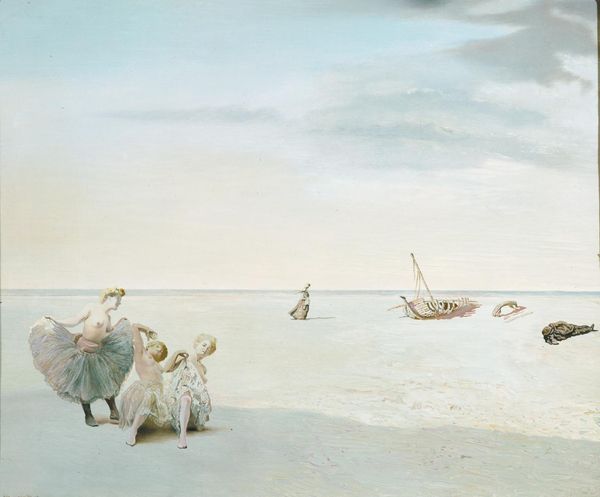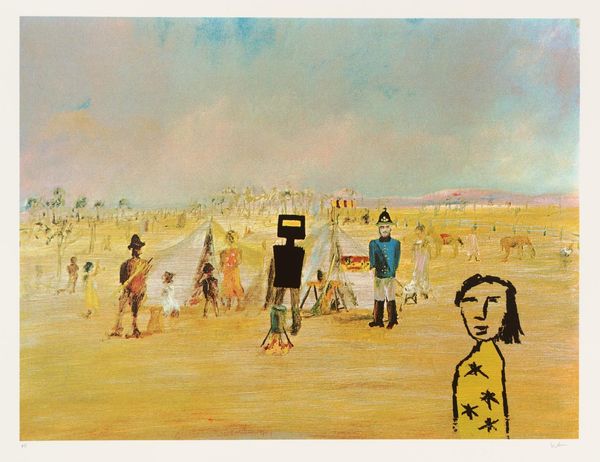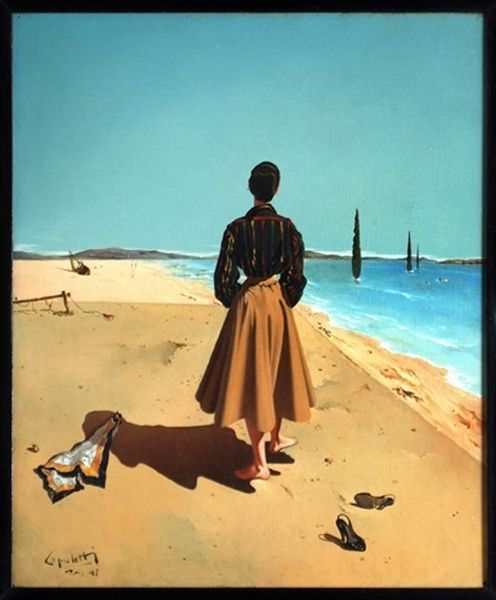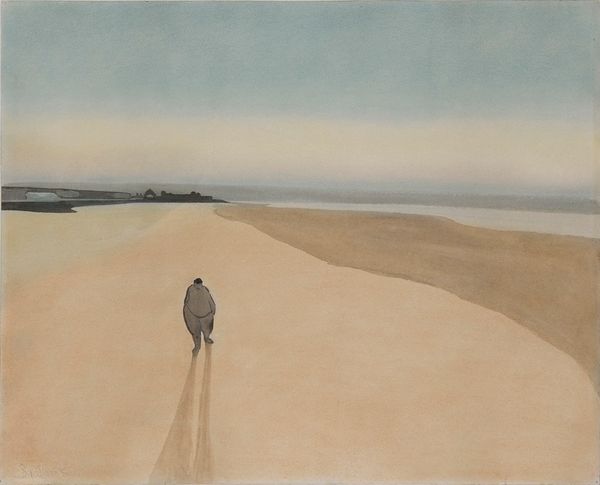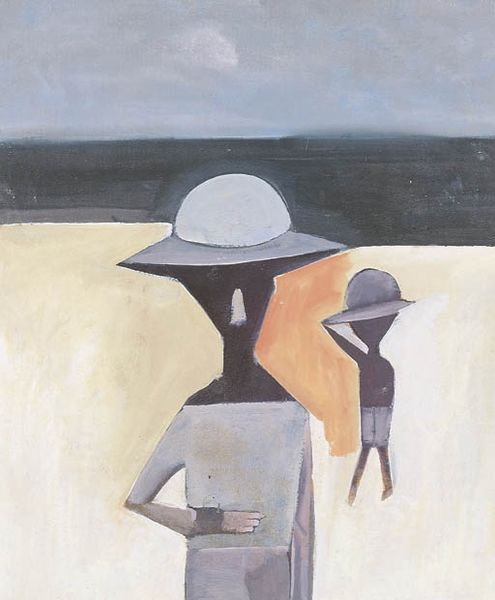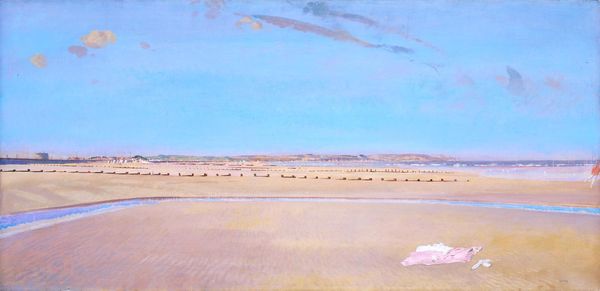
oil-paint
#
oil-paint
#
landscape
#
figuration
#
oil painting
#
neo expressionist
#
surrealist
#
surrealism
#
modernism
#
expressionist
#
erotic-art
Copyright: Jose Manuel Capuletti,Fair Use
Editor: So, we’re looking at "Romeo Y Julietta con una Testigo," an oil painting by Jose Manuel Capuletti. The figures in this landscape setting… it feels dreamlike, theatrical even. Almost unsettling with that strange fight scene between two dancers. What are we meant to take away from it, do you think? Curator: Unsettling is spot on. And, of course, there’s the “Testigo” – the witness. This figure on the stool; removed, with shoes abandoned...is she an impartial observer, a reluctant participant, or something else? Is she really reading a book or is she just pretending to hide? And what does it mean to have such recognizable, beloved characters placed in a scenario as awkward and charged as this? Editor: I hadn't considered the possibility that the characters were Romeo and Juliet! With the two dancers fighting and the witness. Perhaps it's about love turning sour or dangerous, especially as she's maybe abandoning all those social expectations. It's not very romantic, is it? Curator: Exactly! Capuletti throws that ideal on its head. There’s also the almost bare landscape, the industrial buildings barely seen behind the dancing duellers and even her strange vantage point that suggests something other worldly. What story does the backdrop weave, do you think? Editor: A contrast between nature and industrial progress? A lost paradise perhaps with love turning dangerous instead of magical, no escape! Curator: Maybe! It seems we’re both taking our own meanings from that surreal background. Editor: That’s great, this painting's richness creates more stories. I appreciate your insight into this artwork! I am now ready to face whatever narrative is revealed. Curator: I totally agree. It seems the artist wants to make it his own and the magic comes precisely because, as interpreters, we get to make it ours.
Comments
No comments
Be the first to comment and join the conversation on the ultimate creative platform.
